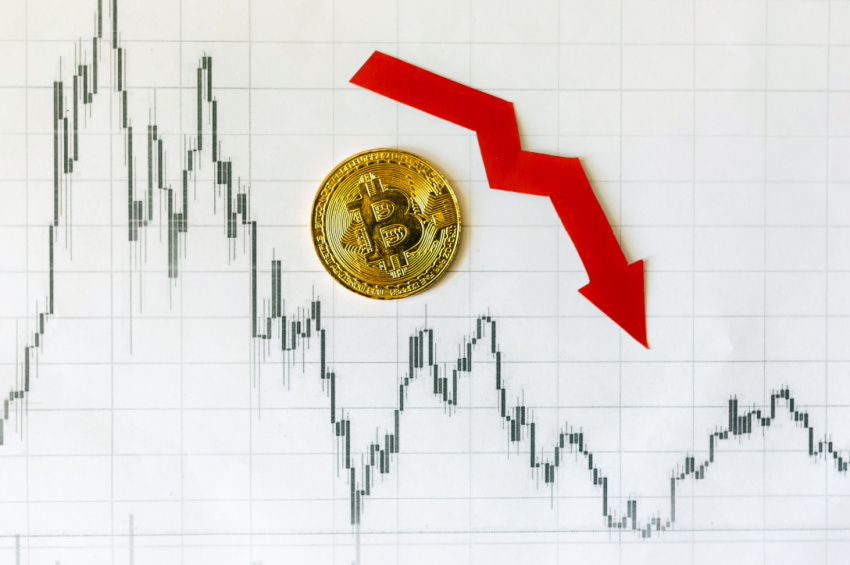After months of warnings and threats, the U.S. Securities and Exchange Commission (SEC) filed a lawsuit against Binance, the largest cryptocurrency exchange in the world. Following that, the SEC immediately filed another lawsuit against Coinbase, alleging improper conduct by the largest cryptocurrency exchange in the United States. Given the recent signals from the SEC, its actions against Binance and Coinbase were not wholly unexpected. However, what surprised the markets was the SEC’s simultaneous pursuit of both exchanges, which amplified the consequences of its actions. Let us discuss more about this in detail here.
A Brief Introduction About Breaching Securities Laws in the U.S.
Changpeng Zhao, the founder of Binance, was accused of breaching securities laws by allowing U.S. customers to trade on Binance.com. The SEC accuses Coinbase of improperly engaging in the securities market by functioning as an unregistered broker, clearing agency and securities exchange. Ethereum (ETH) was not included in the SEC’s litigation against Binance and Coinbase, possibly due to the CFTC’s classification of ETH as a good or service rather than a security. This demonstrates the complex connection among regulatory bodies regarding the classification of cryptocurrencies.
Despite the frequency of SEC lawsuits and settlements in the finance sector, investors and traders don’t have to be concerned. Big financial institutions such as JPMorgan Chase, Bank of America, BNP Paribas, Citigroup and HSBC have been penalized billions of dollars, with Bank of America’s staggering $60 billion sanction.
When confronted with regulations from the SEC, firms have two options: settling the case or defending themselves in court. In a similar action, the SEC lodged a lawsuit against Ripple in 2020, claiming that its sale of XRP tokens constituted an unregistered securities offering. This case has been pending for years without any indication of resolution. Both Binance and Coinbase have stated that they will fight till the end. This might be a protracted process, as lawsuits frequently last several years.
Learn How the Breaching of Securities Laws Impact Cryptography
Will Clemente, a crypto analyst at Reflexivity Research, recently noted that 86 percent of the crypto transaction volume occurs outside the United States. This statistic is intriguing because it indicates that irrespective of its consequence in the United States, the international acceptance of these assets is unlikely to be affected. If there are any stringent regulatory actions in the United States, it could speed up the implementation of these assets abroad. This could result in more people and businesses relocating abroad and adopting these assets, recognising their international nature as opposed to being restricted to U.S.-based assets. The positive news is that the things that constitute cryptographic security will now be answered. The courts will hear both parties’ arguments before deciding whether these assets are securities. This will bring the crypto industry much-needed clarity.
Also Read: All About the First Republic Bank Acquisition & SVB Downfall
Future of Crypto- Legal Disputes, Howey Test, & Regulatory Uncertainty
The U.S. Securities and Exchange Commission (SEC) has aggressively pursued legal action against prominent cryptocurrency industry participants, such as Ripple, Binance, and Coinbase. The SEC relies on the test developed by Howey to argue that cryptocurrencies must be categorized as securities, which is the primary matter at stake.
SEC v. W.J. Howey Co., a landmark court case from the 1940s, established criteria for determining whether or not an investment fits as a security. The test determines whether an investment entails the pooling of funds in a joint enterprise whose profits are wholly attributable to the efforts of others. This definition is intended to protect investors from fraud and misrepresentation and to go beyond traditional securities.
Over time, the SEC has utilized the Howey Test to evaluate an assortment of unconventional assets. The 1933 Securities Act grants the SEC authority in this area by mandating registration along with disclosure requirements for securities. Since securities classification is not always easy to understand, the Howey Test assists in identifying which assets are subject to securities regulation.
The SEC is sending court notices to Ripple, Binance and Coinbase, and other exchanges. Gary Gensler, the chairman of the Securities and Exchange Commission, and other officials have stated that the majority of crypto assets are contracts for investment and securities, according to the Howey Test. The SEC recently accused 54 crypto assets, or roughly 10% of the market, of being securities. This has led to significant industry disruption.
Recently, the SEC adopted a novel strategy by focusing on cryptocurrency exchanges rather than individual assets. It added sixteen digital assets of potential securities to its list but emphasized the exchanges which facilitated their trading. For example, Coinbase has been accused of breaching securities laws by failing to register as an exchange. The SEC contends that securities laws govern Coinbase’s operations due to the platform’s accessibility to crypto asset securities.
Coinbase is paying more attention to the associated risks and to determine whether crypto assets count as securities per applicable laws. However, the company is mindful of the potential legal and regulatory repercussions it may face if the SEC decides that any crypto asset is a security. The legal proceeding against Coinbase has the potential to have a significant effect on the firm’s operations.
The SEC has determined that crypto assets besides Bitcoin and Ethereum are not securities, which account for an important part of Coinbase’s transaction revenue. Coinbase has contested the applicability of the Howey Test to the following:
1. Secondary market sale of digital assets
2. Assertion that its staking programme satisfies the requirements of an investment deal
The outcome of these legal disputes will affect not only the companies involved but also the cryptocurrencies future in the United States. Congress may play an important part in establishing the regulatory structure for the field of crypto assets. But until then, it will be up to the courts to determine whether the Howey Test is still relevant in today’s swiftly developing digital asset landscape.
The takeaway
These recent occurrences illustrate the increasing scrutiny from regulators faced by the cryptocurrency industry and its influence on the dynamics of the market. As the legal proceedings progress, the outcomes may influence the future environment of cryptocurrency trading platforms under which they operate.



